There has never been a more interesting time to work in fleet or the wider transport and logistics industry.
The use of big data, the move towards electric vehicles, the development of connected and autonomous vehicles and Mobility as a Service (MaaS) all bring new opportunities – and require new skillsets.
Due to the Covid-19 pandemic, industry ‘outsiders’ are finally starting to appreciate what a fundamental role transport plays in our lives.
All these factors have the potential to attract new people to the sector but more still needs to be done to increase diversity, which will ultimately help businesses to thrive. Women account for just 20% of the overall transport and logistics workforce, although the proportion of female readers of Fleet News is higher at 29%.
One way to address the gender imbalance is to champion the achievements of those women already working in transport and logistics and help inspire the next generation of female talent.
That’s precisely what the Everywoman in Transport and Logistics Awards, which have been running for 13 years, does.
This year’s awards, supported by Fleet News as the official media partner, took place online earlier this month due to the pandemic. But that didn’t stop attendees from putting on their glad rags and raising a toast to some remarkable achievements.
There were 15 winners on the night (see below).
Here we profile four of them who, in different ways, have each been making their mark on the transport and logistics landscape.
Louise Whitehouse: Woman of the Year
‘We can’t let Covid stop us doing things’
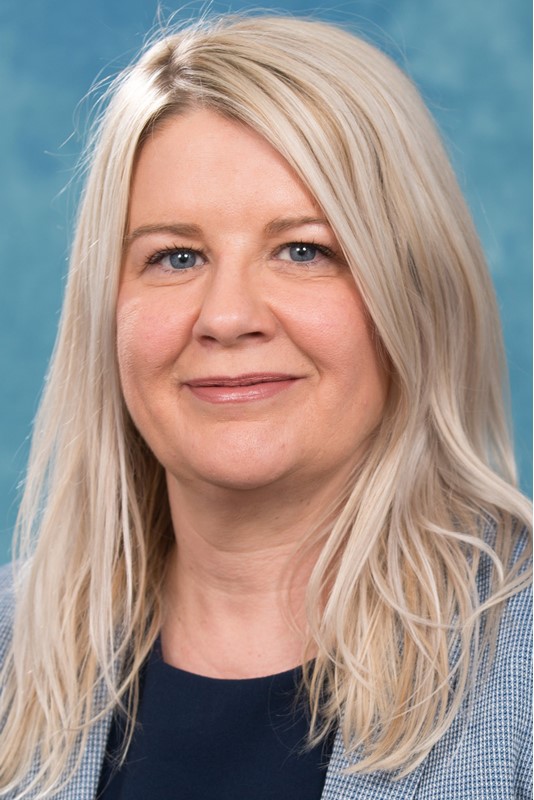 Louise Whitehouse, managing director, fleet maintenance Europe at FedEx and the winner of the headline ‘Woman of the Year’ Award, is on a mission to give more women the confidence and the connections to develop their careers in transport.
Louise Whitehouse, managing director, fleet maintenance Europe at FedEx and the winner of the headline ‘Woman of the Year’ Award, is on a mission to give more women the confidence and the connections to develop their careers in transport.
She founded and chairs FedEx’s internal networking group, the UK Women’s Inclusive Network, which has grown to nearly 700 members since its launch on International Women’s Day in March last year.
The network purposefully has ‘inclusive’ in its title because although it is “about women supporting women and advancing their careers, we need men to do that too”, Whitehouse explains.
Men make up around 10% of the membership and are actively involved.
A mentoring programme was launched in June this year, giving 15 females working at any level in the business the opportunity to be mentored by one of the UK managing directors or vice-presidents for nine months.
In keeping with the network’s ethos, all of the mentors are volunteers.
Virtual meetings
The plan originally was for the mentors and mentees to meet face-to-face six times over the nine months as they are based throughout the UK, but due to Covid-19 restrictions the meetings have been taking place virtually instead.
“We can’t let Covid stop us doing things,” Whitehouse says. “It’s probably more important now that we continue to support and develop the teams, and mentor and coach them. We can’t stop doing that just because we can’t physically see each other.”
Feedback from the first three months of the programme has been positive.
“It can be quite daunting for, say, a traffic clerk to be mentored by an MD because they will think ‘What can I say? What can’t I say?’ And I think it’s probably helped them a little bit with their confidence because they’re not having to sit in a room with someone,” Whitehouse says. “The relationships, you can see when we were talking to them, how they’ve been built, even virtually.”
Having virtual meetings has also enabled the mentors and mentees to have more regular meetings, often once a month.
As well as the mentoring programme, guest speakers (male and female) help inspire women in the network.
They talk about who their role models were, how they advanced their career and their background, which can help challenge preconceptions.
“I think most people have worked their way up through a business,” Whitehouse says. “I didn’t set out when I was 18 to be the head of fleet maintenance in Europe. So, if you can tell your story that gives other people the confidence to think ‘well, what do I need to do over the next two years to progress?’.”
Whitehouse has progressed her career by being prepared to take risks and work in different parts of transport and logistics.
She started in a customer service role at TNT in 1988 before moving into operations, where she “loved the whole hustle and bustle”.
She went on to become the youngest depot manager at the organisation, aged 23, before progressing to national process manager.
After having her son and returning to work, she was offered a role at Parcelforce as a general manager on a 12-month contract, which she decided to take because “I wanted to see what I was capable of” rather than remaining “comfortable” by continuing to work at TNT.
That move was followed by various roles at Royal Mail and City Link, during which time Whitehouse discovered that she liked taking on something unfamiliar or something which needed to be changed.
In 2015, she was approached by TNT to become head of ground operations, precisely because she had had a varied career.
When FedEx acquired TNT the following year Whitehouse became managing director, ground services – the first woman to hold a managing director role at FedEx – before moving to her current job last year.
She is responsible for the maintenance of 7,000 vehicles and trailers, and around 20,000 items of ground services equipment, along with 35 workshops and a team of 350 people across Europe, including senior managers, district managers, supervisors, engineers and technicians.
As it is an international role, Whitehouse is used to communicating with colleagues online and the pandemic has not caused her or her team “any major issues”.
“We’ve been able to carry on and make sure all the safety and compliance has been completed so we’ve been quite fortunate,” she says.
Key to Whitehouse’s role
Making sure assets are available 24/7 and legal compliance throughout the various countries are key parts of her role.
Whitehouse also has to consider how the move to electric vehicles and hydrogen will impact the workshops. That means upskilling people who are generally mechanical engineers and attracting new people to the industry.
“We’ve got to get people thinking differently about what maintenance means,” she says.
Attracting more women to work in the workshops, which are still predominantly male, will help address the skills shortage.
In the past two years, FedEx has focused on engaging with more women in the recruitment process for its apprenticeship programme, resulting in three female apprentice technicians joining the business because “they were the best candidates for the job”.
Whitehouse is now a member of the European FedEx Diversity and Inclusion Council, whose aim is to ensure FedEx is “living and breathing the culture values that we say are within the business”.
She intends to start working with the other countries in Europe to create their own women’s networks and potentially create a Europe-wide women’s network.
The first step has been subscribing to Everywoman for the whole of Europe, giving employees access to its tools for free. She also wants to share the best practice and learnings from the UK with all other European countries.
“Generally, we have a lot of senior females in the business at MD, VP and SVP (senior vice president) level and our CEO in Europe is female so you’re definitely not held back,” Whitehouse says. “The opportunities are there, it’s about giving people the confidence to take them.”
Caroline Moody: The Freight Award – Leader
‘I fight for logistics’
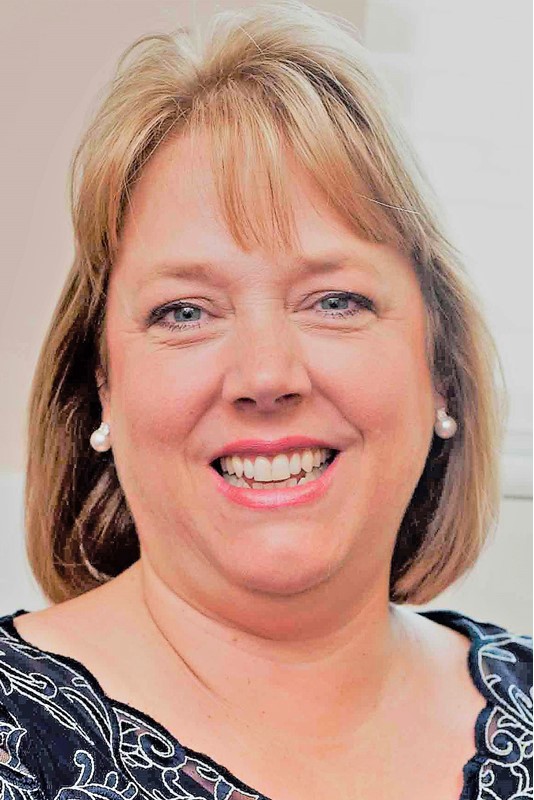 Caroline Moody, managing director at Moody Logistics & Storage and winner of the ‘leader’ category of the Freight Award, is always prepared to “fight for logistics”, whenever she gets the opportunity to speak to MPs and Government ministers.
Caroline Moody, managing director at Moody Logistics & Storage and winner of the ‘leader’ category of the Freight Award, is always prepared to “fight for logistics”, whenever she gets the opportunity to speak to MPs and Government ministers.
“The thing I’ve always pushed is how important the logistics industry is because we often get forgotten,” says Moody, who is the third generation to lead the family-owned business.
“I’ll say, ‘do you realise that everything we touch, everything we wear, everything we eat has been transported in one way or another in its raw form and final state by logistics? And we’re the one industry that could close this country down if we’re not right because everything relies on us doing it right’.”
The Covid-19 pandemic, says Moody, is a case in point.
“Whether it’s getting tests out to people or getting the Nightingale Hospitals ready or PPE, it’s all logistics,” she says.
“So I’m trying to get the Government to see that if they consulted with logistics people, it could probably help them to make the right decisions of what’s possible and what’s not possible.”
Moody says the Government has been keen to understand how the Covid-19 pandemic has been affecting businesses, and, along with other logistics representatives, she has taken part in conference calls with MPs and ministers.
“At the very beginning we were a bit like the supermarkets: we were really busy in March, April, along with the products that were going out,” she says. “In May, June we dropped to about 70% capacity and then July it just shot back up again and we have taken on 10-plus accounts in the past couple of months. We’re lucky, business is about 6% up.”
However, Moody admits the pandemic has been “scary” at times, causing her to worry about the health and financial risks.
“Even as a boss you’re human and I remember driving home every night and having a few tears sometimes in the car because I’d held it together while I’d been at work,” she says. “You’re thinking ‘Am I doing the right thing?’ Because 90% of our staff can’t work from home so you’re asking people to come into work.
“You’ve got to balance everyone’s health and keeping the business going because we’re not like a restaurant – if we closed for a couple of weeks and then re-opened you wouldn’t have a business to come back to because your customers’ would have gone elsewhere. I knew we had to keep going in that respect.”
Leading from the front
Moody felt that as a leader of a transport company she had to be in the office too.
“It was wrong for me to sit at home barking instructions on the phone to everybody else. I had to lead from the front and be here to give them the courage and foresight to keep going so that’s what I did.”
On the positive side, she says it has been “lovely to see the industry being recognised as key workers” and her drivers feel proud of the part they are playing in the pandemic, alongside doctors and nurses and other key workers.
Their work has been made as safe as possible with masks, screens, hand gels and temperature checks.
To add to the challenge, sister company Heathline Commercials, which services and maintains Moody Logistics & Storage’s vehicles, moved to a £500,000 purpose-built workshop at Moody Logistics’ site in Cramlington, Northumberland in March.
The business, which Moody also heads, was able to hold a Covid-secure opening of the new workshop in July with Conservative MP for Blyth Valley, Ian Levy. It is the second time Moody has hosted Levy. He first visited during the December 2019 General Election campaign with the then Business Secretary Andrea Leadsom.
“We were lucky, we got to sit and talk through things like apprenticeships in the industry, fuel and how important it is for our industry to be recognised,” Moody says.
Moody, who holds an HGV Class 2 licence, is also keen to promote the industry by speaking at business events and at schools and universities. She has shown schoolchildren that logistics is much more than simply ‘truck drivers’, pointing out to those interested in marketing that there are huge marketing opportunities with truck livery.
She prefers to focus on the industry as a whole rather than the fact she is a woman in logistics.
“You want to be recognised not because you’re a woman in it, but because you’re good at your job,” she says.
“I’ve never found it a disadvantage. I think sometimes when there’s so many men involved in transport, if you are in it as a woman I think you’ve got an advantage, in some respects, because people remember you better.”
Anne Shaw: The Customer/Passenger Award – Leader
‘I’ve had the luxury of building a team from scratch’
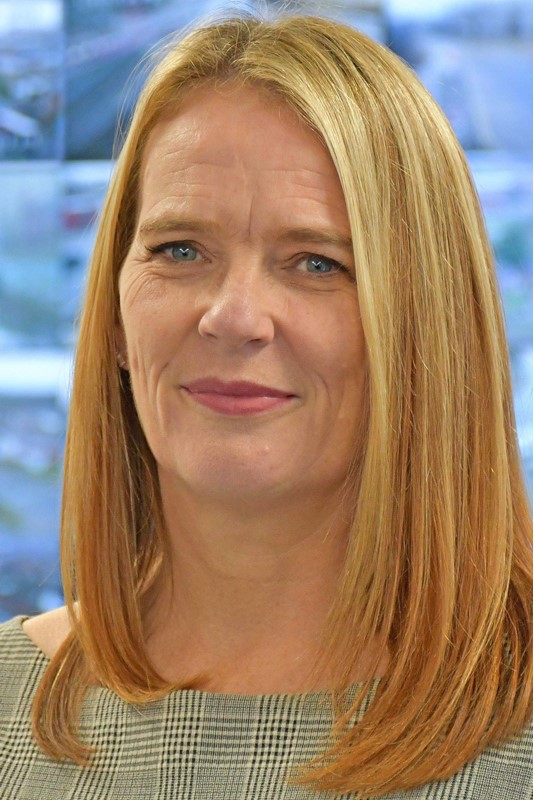 Anne Shaw, director of network resilience at Transport for West Midlands (TfWM) and winner of the ‘leader’ category of the Customer/ Passenger Award, is transforming the way congestion is managed in the region.
Anne Shaw, director of network resilience at Transport for West Midlands (TfWM) and winner of the ‘leader’ category of the Customer/ Passenger Award, is transforming the way congestion is managed in the region.
She built the business case for a Regional Transport Coordination Centre (RTCC), which brings together West Midlands transport authorities and agencies, emergency services and bus, rail and tram operators to ensure they plan for disruptions on the network and deal with incidents as they occur.
A team of data experts, called the Data Insight Service, helps feed information from various sources into the RTCC.
“We’ve got very close to a native, real-time view of the highway network, along with a real-time view of the public transport network,” Shaw says.
“We’ve got feeds of information coming from the trains – whether they’ve been cancelled or there are weather delays, and the same for buses and trams. We’ve got data coming in off the highway network and we’re picking up incidents and road traffic collisions.”
It enables operators in the RTCC to review what is happening in the network and intervene to manage congestion.
Having that picture is essential as congestion is a big issue in the West Midlands.
Shaw says 7% of the local road network carries about 50% of the region’s traffic and more than £4 billion pounds worth of investments in infrastructure is happening at the same time, which will put constraints on the network.
The construction of HS2, in particular, will be highly disruptive as it is, essentially, a series of road projects to put the trainline in, although once it is delivered it will help manage capacity.
Shaw’s congestion management plan has three elements: increase capacity through more rail and transit services and improved bus services to transfer people to public transport, and encourage cycling for shorter trips (40% of car trips are less than two miles); make the networks more efficient through investing in traffic signal infrastructure and, in the future, connected and autonomous vehicles; facilitating communication to encourage a behavioural shift among leisure and business travellers, including speaking to businesses about how they might be able to influence how staff travel.
Better information for customers
The communication side, which earned Shaw the award, involves giving customers better information about what is happening on the network, how it might affect them and what they could do differently. Surveys are used to capture travel behaviour but TfWM is also reaching out to a wider audience through social media.
In some instances, TfWM has found that getting people to change their travel habits during a temporary disruption leads to a
permanent shift in travel behaviour.
Shaw’s role also encompasses the not so ‘small matter’ of the Birmingham 2022 Commonwealth Games, which requires a well thought out transport plan.
At the moment, the organising committee is planning for the Games to be ‘normal’ with live spectators, but data insights will prove valuable should Covid-19 restrictions be in place.
Shaw says the RTCC has been “absolutely critical in managing the Covid implications on the transport system”.
The network went from being “very busy” to traffic levels “plummeting” during lockdown and the bus, tram and train services having to be reduced, with just a basic service running for keyworkers.
As lockdown eased, the network had to be built back up again and adapted to deal with social distancing requirements and compliance of people wearing face coverings on public transport, and the increase in travellers, particularly with the schools returning in September.
In the current circumstances, with local Covid-19 restrictions in place in the West Midlands, there has been another in people
travelling.
“The RTCC seeing all those data insights has really helped us to understand and plan for and manage and work across all of those different agencies, and helped in managing our combined response on the transport system,” Shaw says.
As part of the development of the RTCC, there is a Skills Academy in place to encourage young people into transport, particularly around traffic engineering and data science.
Having started in transport nearly 30 years ago and feeling it was wrong to be one of just a few women in the room at a black tie event, Shaw has always been keen for more women to work in the sector.
She believes that can be achieved through mentoring, creating an environment where women don’t feel intimidated, and getting both men and women to accept “they have a responsibility to help each other progress”.
“At TfWM I’ve had the luxury of building a team from scratch and I’ve got a good mix of people from different backgrounds ,” she says.
Ivy Mwaura: The Infrastructure Award – Above and Beyond
‘Look at the skills that can apply to logistics’
 Ivy Mwaura, strategic marketing analyst at FedEx and winner of the ‘above and beyond’ category of the Infrastructure Above and Beyond Award, has contributed to projects which have yielded more than £30 million additional revenue over three years.
Ivy Mwaura, strategic marketing analyst at FedEx and winner of the ‘above and beyond’ category of the Infrastructure Above and Beyond Award, has contributed to projects which have yielded more than £30 million additional revenue over three years.
In her previous role, as revenue management analyst at TNT Express, she introduced a process to ensure the volumetric weight of boxes going through its locations was consistently captured, and the customers charged accordingly.
“If you think of a box with a pillow inside, it doesn’t weigh much. But if you think of it in the delivery vehicle it will take up a considerable amount of space so it was a way to ensure we actually charge customers for the space that they take up,” Mwaura says.
“Initially, the project generated £5,000 a week, then £10,000 a week until it started to accumulate to the point where it was £250,000 then £500,000. I think I completely under-estimated what we’d able to achieve.”
The next step was to make the process as automated as possible to free up the loading bay operatives in the hub to focus on other things.
Mwaura says that this activity has now become ‘the norm’ throughout the UK.
Also contributing to the £30m revenue gain was the introduction of a non-conveyable surcharge for items that couldn’t be put through the machine and needed to be moved by two people or a forklift.
Mwaura visited the hubs to find out the categories of the non-conveyable items and created a guide, for internal and external use.
“It really helped relay the message why we needed to recover the cost of manually handling these items, and remove any ‘grey areas’,” she says.
Being able to visit the hubs and see the processes in action, and analysing data, is what appeals to Mwaura about working in transport and logistics.
It was initially a placement at TNT as part of her economics and finance degree that introduced her to the industry.
Mwaura has since been back to her university to speak to first year students about her experiences and encourage them not to automatically think of roles in finance or investment banking but to think about the transferable skills they have that apply to transport and logistics.
For Mwaura, being able to see the parcels and talk to the people in the depots doing the scanning and the loading “brings the numbers alive”.
She has also been inspired by guest speakers at FedEx’s UK Women’s Inclusive Network, which she is a member of and has benefited from the support of a previous Everywoman award winner, helping her to progress to her current role.
2020 Amazon Everywoman in Transport and Logistics Awards winners
Woman of the Year
Louise Whitehouse, managing director fleet maintenance Europe at FedEx
The Freight Award – sponsored by Unipart Rail
Above and Beyond – Hollie Ridley, team leader at Wincanton
Leader – Caroline Moody, managing director at Moody Logistics & Storage
The Customer/Passenger Award – sponsored by Mercedes-Benz Vans
Above and Beyond – Kirstie Bull, manager, Lewes Road Depot at Brighton & Hove buses
Leader – Anne Shaw, director of Network Resilience at TfWM
The Infrastructure Award – sponsored by Wincanton
Above and Beyond – Ivy Mwaura, strategic marketing analyst at FedEx
Leader – Dyan Crowther, CEO at HS1
The Supply Chain Award
Above and Beyond – Jane Phillips, managing director at Pride & Joy
Leader – Tracey Clifford, general manager at Wincanton
The Warehousing Award – sponsored by FedEx
Above and Beyond – Katherine Parker, senior project manager at J Sainsbury
Leader – Natalie Davidson, head of logistics operations and Swindon DC general manager at WH Smith
The Industry Champion Award – sponsored by Asda
Jo Moffatt, market partner for strategic rail at Atkins
Male Agent of Change – sponsored by Siemens
David Hart, director at Momentum Transport Consultancy
Apprentice of the Year – sponsored by Mott Macdonald
Elizabeth Coase, trainee deck cadet at Shell International Ship Services
International Inspiration Award
Liliana Pereira, head of operations LATAM at Steer
To find out more, visit here.



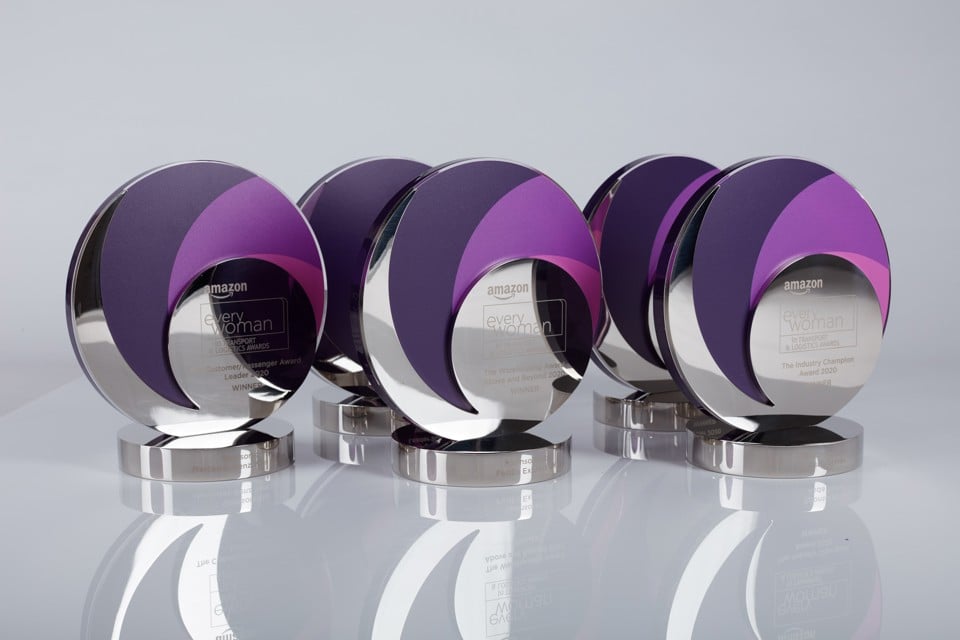















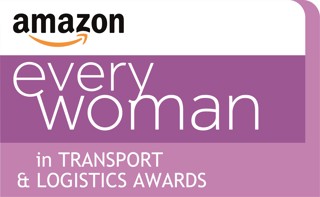

Login to comment
Comments
No comments have been made yet.